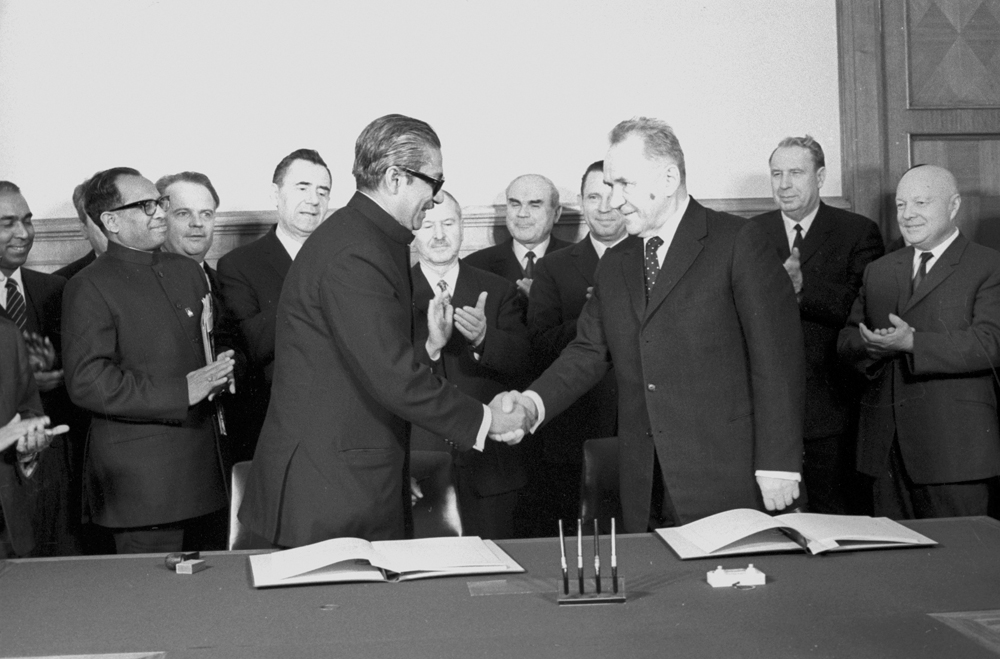
Moscow had friendly ties with almost every South Asian country. Pictured above are Bangladeshi leader Sheikh Mujibur Rahman, foreground left, and Chairman of the Soviet Council of Ministers Alexei Kosygin, foreground, in 1972 in Moscow
Eduard Pesov/RIA NovostiRussian policymakers in the 1990s started ignoring countries that were Moscow’s longtime allies.
Due to the pro-Western tilt of Russian foreign policy under President Boris Yeltsin those states were almost forgotten and the consequences of this are evident to this day. This trend also applies to South Asian states.
There was a clear slowdown even in Moscow’s relations with New Delhi, which happened not only due to the Russian pro-Western course, but also because both countries were going through painful economic reforms in the 1990s.
This situation has recently started to improve, but to be honest, there is still a long way to go to reach the level of the 1960-70s. Today Moscow and Islamabad are also moving towards a more practical relationship without hampering Russia’s ties with third countries.
But South Asia is not just India and Pakistan. There are other independent states (Bangladesh, Bhutan, Maldives, Nepal and Sri Lanka) that are different from each other and have their own significance not only in terms of their traditional culture, but also in the context of the global economy and geopolitics. Moscow had quite fruitful relations with most of them during the Soviet period.
Although there has been neglect over the last two decades, in recent times this situation is changing. There are plans to build a nuclear power station in Bangladesh, and the Russians are exploring tourism opportunities in the Maldives and Sri Lanka.
While the Maldives was only accessible for the elite of Russian society in 1990s, today the archipelago has become a vacation destination open for the middle class as well.
Despite this, bilateral trade between Russia and each of South Asian states remains poor. For instance, the trade turnover with Sri Lanka in 2015 touched only around $440 million, according to the International Trade Center.
Meanwhile, major Asian powers have long ago acknowledged the importance of South Asia’s ‘smaller’ states. The word smaller is written in quotes deliberately: for instance, Bangladesh has a larger population than Russia.
China also considers the Indian Ocean and South Asia as a whole as key platforms for the implementation of the One Belt One Road initiative. This region will play a big role in forming “the Sea Silk Road of the 21stcentury.”
It was in 1971 when the UN General Assembly accepted a Declaration of the Indian Ocean as a zone of peace. Yet, it seems that this declaration was not meant to be implemented in practice. A slew of recent events have led to growing tension in the region. Under these circumstances, it is time for Russia to return to the Indian Ocean as a significant player.
Boris Volkhonsky is the Deputy Head of the Centre for Asia and the Middle East at the Russian Institute for Strategic Studies.
This is an abridged version of an article, first published by the Russia&India Report. Views expressed are personal.
If using any of Russia Beyond's content, partly or in full, always provide an active hyperlink to the original material.
Subscribe
to our newsletter!
Get the week's best stories straight to your inbox